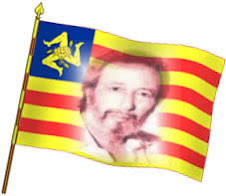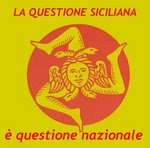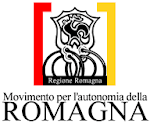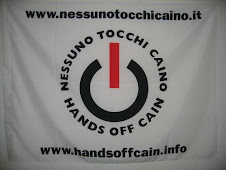 La foto è stata aggiunta da questo blog
La foto è stata aggiunta da questo blog**************
Dal quotidiano "New York Times" del 9 ottobre 2008:
Serbia Wins Bid to Review Independence of Kosovo
By NEIL MacFARQUHAR
Published: October 8, 2008
UNITED NATIONS — In an unusual resort to international law, Serbia won a bid on Wednesday to have the International Court of Justice review the manner in which Kosovo declared its independence.
The vote in the United Nations General Assembly was sharply polarized, with 77 countries supporting Serbia’s request, 6 opposed, including the United States, and 76 nations abstaining.
Serbia’s foreign minister, Vuk Jeremic, said the nonbinding decision from the court “will serve to reduce tensions in the region and facilitate our efforts at reconciliation” by transferring the dispute to a judicial arena. Serbia, calling Kosovo a breakaway province, believes that it acted illegally by announcing what Serbia considers a unilateral declaration of independence, and that the court case will make other states hesitate before extending diplomatic recognition.
The court, based in The Hague, is often called upon to mediate border disputes and the like, but requests from the United Nations for legal rulings are rare.
The case of Kosovo’s independence will be particularly difficult. While international law recognizes certain formal steps toward independence by former colonies in places like Africa or Latin America, there are no similar guidelines for secession in more established regions like Europe, said Nicolas Burniat, a lawyer who worked for the court for six years and is now with Human Rights First, a nonprofit group that works for human rights.
Most European states abstained from voting on the request, with several ambassadors warning Serbia that the initiative would serve only to hobble its entry into the European Union. Noting that 22 of 27 European Union members have recognized Kosovo since it declared independence in February, Sir John Sawers, the British ambassador to the United Nations, said, “Serbia will need to work constructively with its future E.U. partners.”
Jean-Maurice Ripert, the French ambassador, said the measure “does not help the necessary easing of tensions.”
European states could not reach a consensus because several members with separatist tensions of their own, like Spain and Cyprus, want to hear how the court might rule. South Africa noted that while 48 countries had recognized Kosovo, 144 had not, meaning there were plenty of nations that might be influenced by the court’s opinion.
Rosemary DiCarlo, the American envoy, said, “Kosovo’s independence is irreversible.” She described the Serbian request as unnecessary and unhelpful.
Neighboring Albania, which voted against the measure and has strong ties with Kosovo, accused Serbia of dragging its domestic disputes into the international arena. The high number of abstentions suggested that many agreed, with one senior European diplomat saying that Serbia was trying to reconcile the opposite goals of placating the domestic constituency opposed to independence for Kosovo while still pursuing European Union membership.
By NEIL MacFARQUHAR
Published: October 8, 2008
UNITED NATIONS — In an unusual resort to international law, Serbia won a bid on Wednesday to have the International Court of Justice review the manner in which Kosovo declared its independence.
The vote in the United Nations General Assembly was sharply polarized, with 77 countries supporting Serbia’s request, 6 opposed, including the United States, and 76 nations abstaining.
Serbia’s foreign minister, Vuk Jeremic, said the nonbinding decision from the court “will serve to reduce tensions in the region and facilitate our efforts at reconciliation” by transferring the dispute to a judicial arena. Serbia, calling Kosovo a breakaway province, believes that it acted illegally by announcing what Serbia considers a unilateral declaration of independence, and that the court case will make other states hesitate before extending diplomatic recognition.
The court, based in The Hague, is often called upon to mediate border disputes and the like, but requests from the United Nations for legal rulings are rare.
The case of Kosovo’s independence will be particularly difficult. While international law recognizes certain formal steps toward independence by former colonies in places like Africa or Latin America, there are no similar guidelines for secession in more established regions like Europe, said Nicolas Burniat, a lawyer who worked for the court for six years and is now with Human Rights First, a nonprofit group that works for human rights.
Most European states abstained from voting on the request, with several ambassadors warning Serbia that the initiative would serve only to hobble its entry into the European Union. Noting that 22 of 27 European Union members have recognized Kosovo since it declared independence in February, Sir John Sawers, the British ambassador to the United Nations, said, “Serbia will need to work constructively with its future E.U. partners.”
Jean-Maurice Ripert, the French ambassador, said the measure “does not help the necessary easing of tensions.”
European states could not reach a consensus because several members with separatist tensions of their own, like Spain and Cyprus, want to hear how the court might rule. South Africa noted that while 48 countries had recognized Kosovo, 144 had not, meaning there were plenty of nations that might be influenced by the court’s opinion.
Rosemary DiCarlo, the American envoy, said, “Kosovo’s independence is irreversible.” She described the Serbian request as unnecessary and unhelpful.
Neighboring Albania, which voted against the measure and has strong ties with Kosovo, accused Serbia of dragging its domestic disputes into the international arena. The high number of abstentions suggested that many agreed, with one senior European diplomat saying that Serbia was trying to reconcile the opposite goals of placating the domestic constituency opposed to independence for Kosovo while still pursuing European Union membership.
************
http://www.nytimes.com/==================
Serbia:il diritto di rivedere l'indipendenza
Scritto da NEIL MacFARQUHAR
Nazione Unite-Con un insolito ricorso al diritto internazionale, mercoledì 8 ottobre, la Serbia è riuscita ad ottenere che la Corte internazionale di Giustizia si esprimi sul modo in cui il Kosovo ha dichiarato la sua indipendenza.
La votazione nell’Assemblea generale delle Nazioni Unite è stata fortemente polarizzata. 77 paesi hanno sostenuto la richiesta della Serbia, 6 sono stati contrari, compresi gli Stati Uniti, mentre 76 nazioni si sono astenute.Il ministro serbo degli Esteri, Vuk Jeremic, ha detto che la decisione non vincolante del Tribunale "servirà a ridurre le tensioni nella regione e a facilitare i nostri sforzi alla riconciliazione", trasferendo la controversia in ambito giuridico. La Serbia, definendo il Kosovo una provincia separatista, ritiene che quest’ultima ha agito illegalmente nel proclamare ciò che la Serbia considera una dichiarazione unilaterale d’indipendenza. Inoltre il caso giudiziario farà esitare altri Stati a riconoscere il nuovo stato.Il tribunale, con sede all'Aia, è spesso chiamato a mediare le controversie su confini e questioni simili, ma le richieste da parte delle Nazioni Unite sulla legittimità governativa sono rare.Il caso di indipendenza del Kosovo sarà particolarmente difficile. Mentre il diritto internazionale riconosce alcuni passi formali verso l'indipendenza da parte di ex colonie in luoghi come l'Africa o l'America Latina, non ci sono linee guida simili per secessioni in regioni stabili come l'Europa, ha affermato Nicolas Burniat, un avvocato che ha lavorato per la Corte per un periodo di sei anni e ora è impegnato con Human Right First, un gruppo non-profit che lavora per i diritti umani.La maggior parte degli Stati europei si sono astenuti durante la votazione, e vari loro ambasciatori hanno avvisato la Serbia che l'iniziativa potrebbe servire solo a far traballare la sua entrata nell'Unione europea.
Scritto da NEIL MacFARQUHAR
Nazione Unite-Con un insolito ricorso al diritto internazionale, mercoledì 8 ottobre, la Serbia è riuscita ad ottenere che la Corte internazionale di Giustizia si esprimi sul modo in cui il Kosovo ha dichiarato la sua indipendenza.
La votazione nell’Assemblea generale delle Nazioni Unite è stata fortemente polarizzata. 77 paesi hanno sostenuto la richiesta della Serbia, 6 sono stati contrari, compresi gli Stati Uniti, mentre 76 nazioni si sono astenute.Il ministro serbo degli Esteri, Vuk Jeremic, ha detto che la decisione non vincolante del Tribunale "servirà a ridurre le tensioni nella regione e a facilitare i nostri sforzi alla riconciliazione", trasferendo la controversia in ambito giuridico. La Serbia, definendo il Kosovo una provincia separatista, ritiene che quest’ultima ha agito illegalmente nel proclamare ciò che la Serbia considera una dichiarazione unilaterale d’indipendenza. Inoltre il caso giudiziario farà esitare altri Stati a riconoscere il nuovo stato.Il tribunale, con sede all'Aia, è spesso chiamato a mediare le controversie su confini e questioni simili, ma le richieste da parte delle Nazioni Unite sulla legittimità governativa sono rare.Il caso di indipendenza del Kosovo sarà particolarmente difficile. Mentre il diritto internazionale riconosce alcuni passi formali verso l'indipendenza da parte di ex colonie in luoghi come l'Africa o l'America Latina, non ci sono linee guida simili per secessioni in regioni stabili come l'Europa, ha affermato Nicolas Burniat, un avvocato che ha lavorato per la Corte per un periodo di sei anni e ora è impegnato con Human Right First, un gruppo non-profit che lavora per i diritti umani.La maggior parte degli Stati europei si sono astenuti durante la votazione, e vari loro ambasciatori hanno avvisato la Serbia che l'iniziativa potrebbe servire solo a far traballare la sua entrata nell'Unione europea.
Constatando che 22 dei 27 membri dell'Unione europea hanno riconosciuto il Kosovo da quando ha dichiarato la sua indipendenza nel febbraio scorso, Sir John Sawers, l'ambasciatore britannico alle Nazioni Unite, ha detto, "la Serbia avrà bisogno di lavorare in modo costruttivo con i sui futuri partner dell’UE".
Jean-Maurice Ripert, l'ambasciatore francese, ha detto che la misura "non contribuisce necessariamente ad allentare le tensioni" esistenti.
Gli Stati europei non sono riusciti a raggiungere un accordo tra loro in quanto membri con tensioni separatiste interne, quali Spagna e Cipro, vogliono sapere cosa potrebbe decretare la Corte.
Gli Stati europei non sono riusciti a raggiungere un accordo tra loro in quanto membri con tensioni separatiste interne, quali Spagna e Cipro, vogliono sapere cosa potrebbe decretare la Corte.
L’ambasciatore del Sud Africa ha fatto notare che mentre 48 paesi hanno riconosciuto il Kosovo, altri 144 non l’hanno ancora fatto, pertanto molte nazioni potrebbero essere influenzate dal parere della Corte.
Rosemary Di Carlo, l'inviato americano, ha dichiarato che "l'indipendenza del Kosovo è irreversibile." Ha descritto la richiesta serba come inutile e dannosa.La confinante Albania che ha votato contro la richiesta serba e ha forti legami con il Kosovo, ha accusato la Serbia di trascinare la sua controversie domestiche nell’arena internazionale. L'elevato numero di astensioni, potrebbe suggerire che molti sono stati d’accordo con quanto sostenuto da un diplomatico europeo secondo il quale la Serbia sta cercando di conciliare obiettivi opposti: placare gli animi degli elettori contrari all'indipendenza del Kosovo, pur aspirando all'adesione all'Unione europea.











































Nessun commento:
Posta un commento